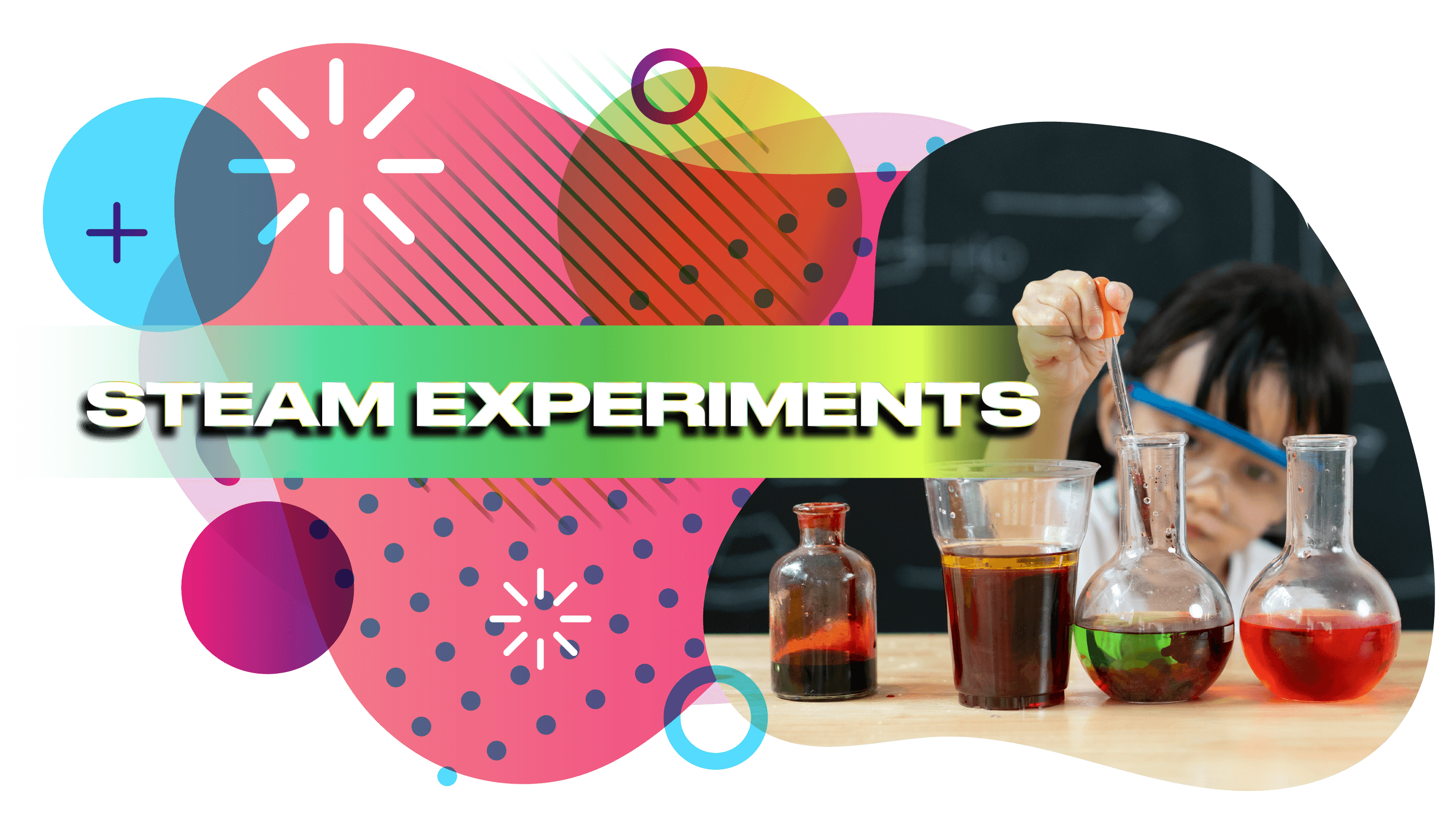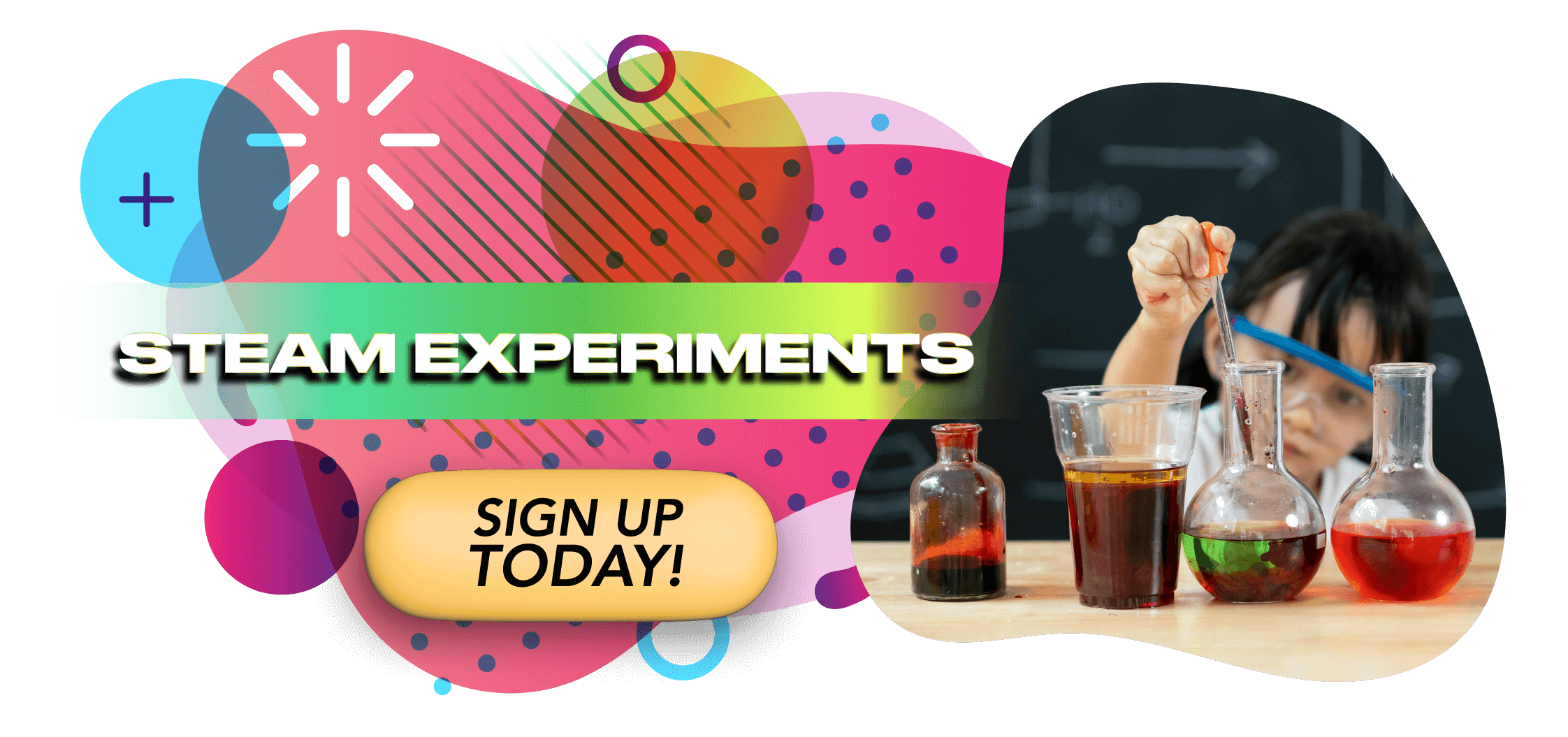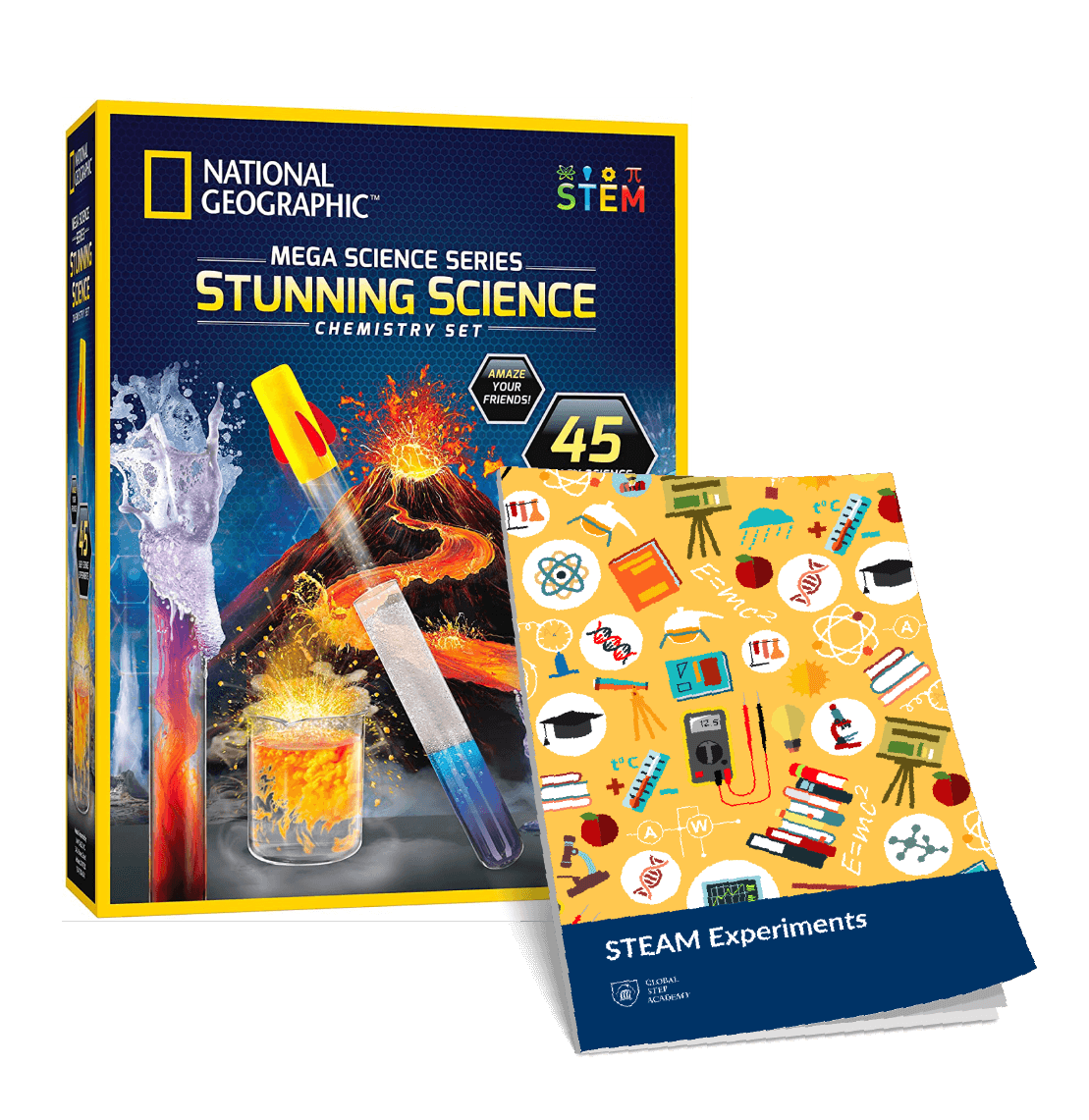STEAM education is an approach to learning that uses science, technology, engineering, art and mathematics as an access point to encouraging student collaboration, inquiry, critical thinking and problem-solving. In the first instalment of our STEAM Experiments course, Stunning Science, students will gain invaluable hands-on experience conducting their own scientific experiments while learning the fundamentals of chemistry.
VOLUME 1
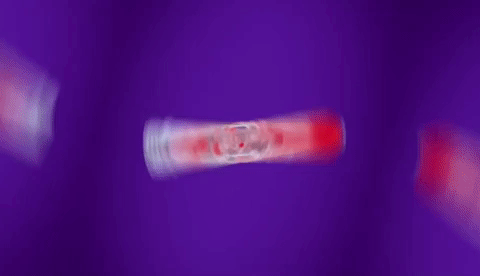
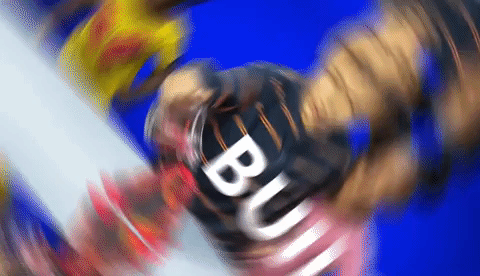
Lesson 1
In the first lesson of this course, students will begin to delve into the world of chemistry, learning a bit about its history and importance. During this class, students will get to build their own volcano, which they will get to use throughout this course to simulate eruptions through chemical reactions.
Lesson 2
What is a chemical reaction? That is exactly what students will begin to explore as they move into the second lesson of this course. Students will create an erupting geyser, while discussing exactly how the chemicals involved produce such an explosive result.
Lesson 3
In the third lesson, students bring out their completed volcano and make it erupt in a variety of ways. While learning a bit about how volcanoes work naturally, students will discuss exactly how we can use chemistry to simulate this phenomenal geological process.
Lesson 4
In the final instalment of this volume, students will learn about density of liquids by creating their own underwater volcano. Wow! From there, the fun continues as students learn about precipitation reactions as they create their final eruption of the course!
VOLUME 2
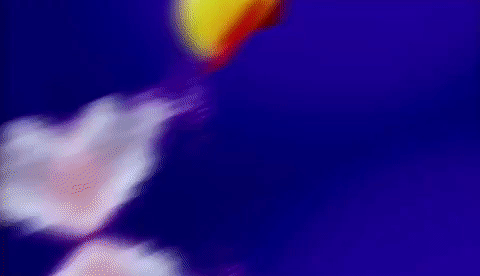
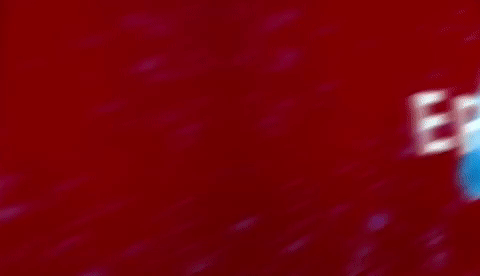
Lesson 1
In this lesson, students will dive deeper into the world of chemistry by learning about acids and bases. Students will perform several experiments to see exactly how these reactants come together to produce such exciting results and how this type of chemistry applies to the real world.
Lesson 2
There are so many factors that affect a reaction. This lesson focuses on what those factors are, and how we can adjust those factors to alter results. Students will also learn about ways they can recognize a reaction is taking place, all while completing their own series of chemical reaction experiments.
Lesson 3
Blowing up balloons can be hard work! Whew! Well not in this class. By blowing up a balloon using two different experimental methods, students will get to explore how reactions produce gases as a product and how this gas can be useful in real-world scenarios.
Lesson 4
In our final instalment of this course, students will blast into space as rocket scientists, as they use chemical reactions to launch their very own rocket. Students will not only learn how a real rocket works, but they will also discuss exactly how we can use simple chemistry to mimic the process on a smaller scale.
Throughout this course, students will be focusing on how to improve these core skills:
Scientific Method
Did you know that scientists follow a strict set of steps when completing experiments? In this course, students will learn about this set of steps, called the scientific method. From asking a question and forming a hypothesis, to collecting and analysing data to determine a result, students will work through this process for each of their in-class experiments.
Principles of Chemistry
Learning the basic principles of chemistry will form the foundation for each experiment within this course. Students will begin to develop their knowledge of reaction dynamics and how a variety of chemical substances interact with one another to produce a given outcome.
Critical Thinking and Problem Solving
An important skill for scientists, students will focus on developing their ability to think critically to solve challenging scientific problems. For example, why does a reaction happen under one condition, but not under another? Students will learn to ask the right questions about an experiment, and then to deduce possible answers to those questions. They will also work toward analysing results from each experiment, not only to determine the outcome, but also to develop ideas for further scientific inquiry.
Cross-Discipline Application
STEAM disciplines are all interconnected. Not only will students learn about chemistry in this course, but they will also begin to learn how to take information from one discipline and apply it across a variety of others. This cross-discipline application is an invaluable tool for developing a complete understanding of a topic and for furthering inquiry into each discipline.
Upcoming STEAM Experiments Courses Coming Soon
Volume 3 and 4 (Amazing Reactions)
*subject to change
Students that sign up for GSA STEAM Experiments course will receive:
- National Geographic Stunning Science kit
- GSA STEAM Experiments Workbook
Online Summer Program 2022 Schedule
Camp Details
Camp 1: STEAM Experiments Volume 1
Dates: 7/25 - 7/28
Times: 10:00 - 10:50 JST or 15:00 - 15:50 JST
Price ¥13,300*
Number of Classes: 4
Camp 2:STEAM Experiments Volume 2
Dates: 8/1 - 8/4
Times: 10:00 - 10:50 JST or 15:00 - 15:50 JST
Price ¥13,300*
Number of Classes: 4
Camp 3:STEAM Experiments Volume 1*
*This is a repeat of Camp 1
Dates: 8/8 - 8/11
Times: 10:00 - 10:50 JST or 15:00 - 15:50 JST
Price ¥13,300*
Number of Classes: 4
Camp 4:STEAM Experiments Volume 2*
*This is a repeat of Camp 2
Dates: 8/15 - 8/18
Times: 10:00 - 10:50 JST or 15:00 - 15:50 JST
Price ¥13,300*
Number of Classes: 4
*New students who sign up for the STEAM Experiments: Stunning Science volumes will need to pay an additional one-time fee of ¥6,500 for the STEAM Experiments: Stunning Science kit. This fee is not required for future STEAM Experiments: Stunning Science volumes.
Student Requirements
Age: 7+
ELA Level: ELA Advanced Grade 1 and up
Core Skills Requirements:
- Listening
- Students should be able to follow intermediate instructions with some assistance such as: “Place water in the cup on the table.”
- Speaking
- Students should be able to respond in basic to intermediate terms with some assistance such as: “Yes, it is mixed.”
- Writing
- Student should be able to write basic words with some assistance such as: “The mixture is purple.”
- Reading
- Students should be able to read basic words with some assistance such as: “Step 3: Add the oil to the water.”
Deadline
Deadline to sign up is 6/20.
Students who cancel their reservation before 6/20 will not be charged.
Additional Materials
Students will need to have these materials in order to participate:
- A clean workspace
- Paper Towels
- Water
- Dish Soap
- 500ml Bottle of Soda Water
Preparation Before Class
- Students should prepare their workspace before class. It is ideal that students cover their space with newspaper or paper towel, as some experiments may be messy.
- While it is optional for parents/guardians to supervise their child, it is highly recommended.
Sign Up To Reserve Your Spot!
